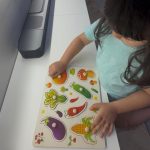Intellect, Emotions, and Autism — In Search of Personal Harmony
There is no comprehensive definition of what intellect is. Scientists have attempted to define it and propose various methods to “measure” intellectual levels, but the criteria to base these measurements on can be endlessly debated. It is unlikely that a universally accepted answer will ever be found, especially when it comes to the specifics of intellect and emotional spheres in autism.
Traditionally, intellectual abilities are evaluated based on the development of logical thinking and mathematical skills, which are expressed in the speed of calculation or solving puzzles. Intellect is divided into blocks: linguistic, motor, logical-mathematical, spatial, musical, and emotional. However, for a long time, logical-mathematical intelligence, being just one of many and a very specific subtype, was considered the key factor for success in life, especially in professional fields, while emotional intelligence was often ignored or viewed as a secondary role.
To a large extent, intellect — or rather, the entire complex of mental abilities — depends not only on basic cognitive skills like attention, perception, memory, and language but also on the ability to interact with others, understand their feelings (empathy), recognize and manage one’s own emotional states.
A strange paradox is often observed: people with very high intellects can fail in both their careers and personal relationships, while those with average logical-rational abilities often achieve impressive life successes in all aspects. Research in this regard has led to the suggestion that the most important factors for success are:
- The ability to make decisions quickly;
- Self-control skills;
- Development of creativity and a desire to learn new things;
- Activity when overcoming challenges;
- Persistence and consistency;
- The ability to maintain optimism and hope even in difficult moments;
- Well-developed interpersonal communication skills (especially in establishing social connections and cooperation) and relationship management;
- The ability to recognize unspoken feelings and non-verbal signals from others.
Thus, it turns out that achieving goals and living a fulfilling life requires emotional intelligence that is just as important as logical-mathematical intelligence. Intuition helps make the best choice among several options selected through rational thinking, provides “hints” when there is insufficient information to make a well-founded decision, and helps understand and manage one’s own emotions.
The inner world of autistic individuals is as rich as that of others, but they often struggle to express their emotions or do so in a way that others simply do not understand. Even young children show a wide variety of emotional reactions when interacting with parents — from indifference and detachment to panic when their mother steps away.
However, they may respond to expressions of love, care, and affection differently than others — for example, they may be reluctant to be held and show displeasure when embraced. These children are also prone to ignoring or misinterpreting the emotions and non-verbal signals of others, including facial expressions. They need to be taught this skill, as it is one of the key social skills essential for personal success and a harmonious life.
A child with limited understanding of others’ emotional states may react inappropriately to situations and have difficulty determining their own feelings toward others. Stabilizing the emotional sphere of such children is challenging — primarily, the root cause of behavioral and social reaction disruptions, which is autism, needs to be addressed. Stem cell therapy is one of the most effective ways to achieve this.
Unlike traditional methods, it does not involve medications or psychological influence but uses the body’s ability to self-heal, making it a highly natural approach. This goal can be achieved through stem cell transplantation, which has a unique ability to transform into any other type of cell. After this transformation, they become healthy analogs of damaged cells and replace them, leading to the normalization of brain and nervous system activity soon after the procedure. This allows for better perception of the world and specific events. This result is often long-lasting and even permanent, enhancing the impact on behavior and other symptoms of autism through additional correction methods.
Cellular therapy has become a widely recognized approach in the fight against autism and its manifestations and can be considered the primary one. A particularly telling fact is that it is now approved and actively used in leading clinics around the world, including the Mardaleishvili Medical Center. The highly skilled doctors at this facility have extensive successful experience and the most modern equipment required for performing transplants at the highest level, which ensures the most positive therapeutic results. The center’s services are more affordable than in other countries, and an added advantage is the assistance provided in preparing for the trip and handling various issues, including accommodation during rehabilitation.
Make use of cellular therapy — a reliable method for combating autism!
Autism Treatment Center Videos
Autism treatment with own stem cells
Cord blood association congress
International Quality Crown
Autism Treatment Reviews
Autism treatment with own stem cells
The story of Alessandro (6 years old)
Autism Patient Testimonial - Stem Cell Treatment
Clients Testimonials

Lidiya — Elina’s mother Read More

Anna – Sasha’s mother Read More

Amirkhon’s father — Tokhir Read More

Dilana’s mother Read More

Irina and Stefan – Ilya’s parents Read More












